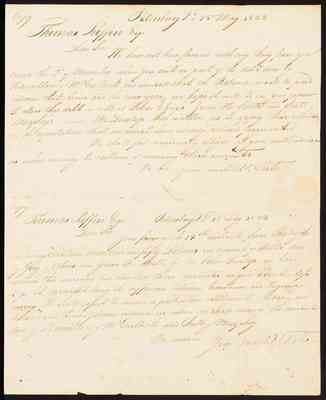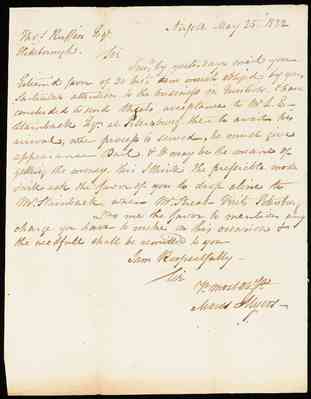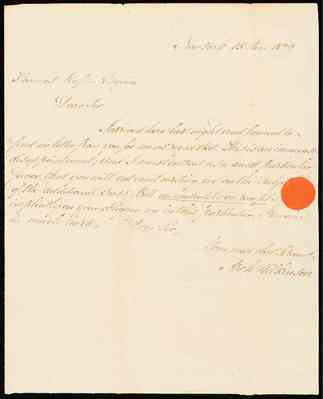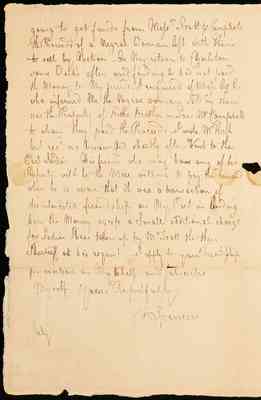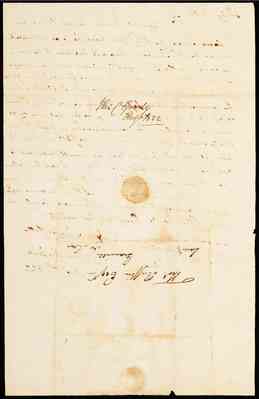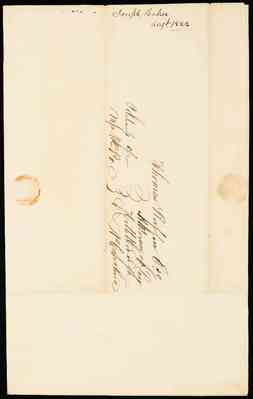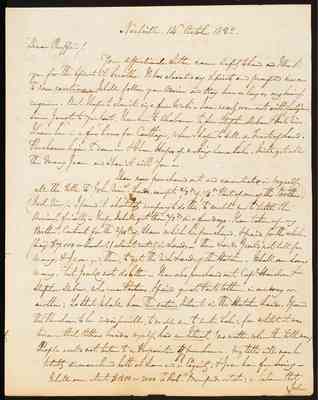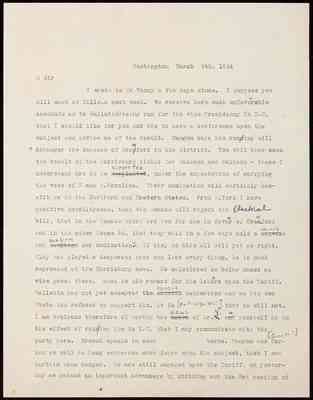About
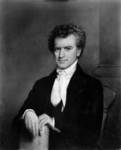
CONTENT WARNING: the contents of these papers include depictions of brutal violence and human trafficking by enslavers.
Thomas Ruffin, chief justice of the North Carolina Supreme Court, planter, and politician, served in the North Carolina House of Commons, 1813-1816; as judge of the Superior Court, 1816-1818; as reporter of the Supreme Court of North Carolina, 1820-1822; and as judge of the Superior Court in 1825-1828. Ruffin became president of the State Bank of North Carolina in 1828. He was elected judge of the Supreme Court of North Carolina in 1829 and became chief justice in 1833. He served as chief justice until 1852 and again from 1858 to 1859. Ruffin was president of the North Carolina Agricultural Society, 1854-1860. He was a delegate to the Washington Peace Conference and to the North Carolina Secession Convention in 1861. The collection includes correspondence, financial and legal papers, and other papers of Thomas Ruffin, and correspondence and financial records of his father, Sterling Ruffin. Major topics are family concerns, especially relating to women; work on plantations in Rockingham, Caswell, and Alamance counties, N.C.; Ruffin's legal practice; borrowing and lending money; the State Bank; Ruffin's other business ventures, including a slave-trading partnership; and his brother's business in Alabama. There is considerable correspondence with merchants in Petersburg, Va., Hillsborough, N.C., and Fayetteville, N.C., about debt collection and legal business. Letters about national politics appear particularly around the War of 1812 and the Civil War. Also included are letters from two of Ruffin's sons who were officers in the Confederate army (5th North Carolina Infantry Regiment and 13th North Carolina Infantry Regiment), and letters about political and economic conditions in the Confederacy. There are letters as well from family members who were students at the University of North Carolina in Chapel Hill, 1813 through the 1840s. Among the correspondents are Ruffin's father-in-law, William Kirkland; his sons-in-law, J. B. G. Roulhac and Paul Carrington Cameron; and friends and business associates, including Archibald De Bow Murphey, Duncan Cameron, and George Badger.
Works
folder 105: Correspondence, 13–21 May 1822
Collaboration is restricted.
folder 106: Correspondence, 22–31 May 1822
Collaboration is restricted.
folder 107: Correspondence, June 1822
Collaboration is restricted.
folder 108: Correspondence, 1–15 July 1822
Collaboration is restricted.
folder 109: Correspondence, 16–31 July 1822
Collaboration is restricted.
folder 110: Correspondence, 1–19 August 1822
Collaboration is restricted.
folder 111: Correspondence, 21–31 August 1822
Collaboration is restricted.
folder 112: Correspondence, September 1822
Collaboration is restricted.
folder 113: Correspondence, October 1822
Collaboration is restricted.
folder 144: Correspondence, 1-17 March 1824
Collaboration is restricted.
